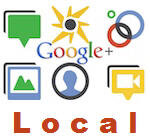Linda Buquet
Member
- Joined
- Jun 28, 2012
- Messages
- 13,313
- Reaction score
- 4,148
Google Developers has a great resource with guidelines and tips for making location pages that are discoverable and crawlable.
They stress unique pages/URLs for each location and using schema. But then also say they can parse the info if all locations are properly marked up on a page.
However keep in mind this is not talking about Places so it's not taking into account the potential merge aspect or ranking impact if she gets confused and can't match up the right Place page with the right location.
Plus there is a lot more at that link above! Hat tip to David Deering's post below.
I 1st discovered this via Mark Goho's post. I guess I should dig into developer help docs more often.
Head over to read the rest. There is quite a lot of information.
Then on this page there is schema.org examples for location pages.
So nice to see the Official Google Webmaster Blog focus on local!

They stress unique pages/URLs for each location and using schema. But then also say they can parse the info if all locations are properly marked up on a page.
However keep in mind this is not talking about Places so it's not taking into account the potential merge aspect or ranking impact if she gets confused and can't match up the right Place page with the right location.
Here is the Official Google Webmaster Central Blog post:
Surfacing your business's contact and local info in Google
Today, we are launching support for schema.org markup to help you specify your preferred phone numbers using structured data markup embedded on your website. Four types of phone numbers are currently supported:
Customer service
Technical support
Billing support
Bill payment
Plus there is a lot more at that link above! Hat tip to David Deering's post below.
I 1st discovered this via Mark Goho's post. I guess I should dig into developer help docs more often.
Location pages for local businesses and organizations - Google Developers
Guidelines for building websites for local businesses
Like any content webmasters want to surface in Google search results, good location pages are easy to crawl by Googlebot and their content is easily indexed. Specifically:
Have each location's or branch's information accessible on separate webpages
Allow Googlebot to discover and crawl the location pages
The location information should be presented in an easy-to-understand format
Use schema.org structured data markup
Each location's or branch's information should be readily available on a webpage. This means that each location needs to be accessible on a unique URL. Knowing the correct page for each location allows Google's algorithms to surface the page for the relevant queries.
Head over to read the rest. There is quite a lot of information.
Then on this page there is schema.org examples for location pages.
So nice to see the Official Google Webmaster Blog focus on local!





